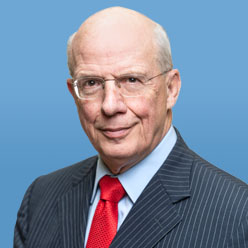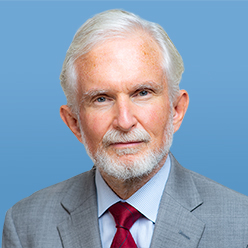As the Russian military continues to occupy Crimea and uses its troops and equipment to support separatists in the Ukrainian Oblasts of Donetsk and Luhansk, AFPC has increased its activity in support of Ukrainian sovereignty.
Since October, AFPC staff helped organize and/or participated in eight conferences on Ukraine, delivered more than one dozen briefings to those who make or influence U.S. policy toward Ukraine, and published articles supporting or proposing additional sanctions, including defensive military aid to Ukraine and other independent countries threatened by Russia. Additionally, AFPC staff attended several meetings organized by the Ukrainian diaspora.
AFPC is working diligently to counter Russian “disinformatsiya” (disinformation). The word refers to Russia’s practice of planting bad information in the Western media.
Once a bad fact shows up in a paper or on a TV show, it is often repeated by well-meaning people who assume that it is true. Gradually a free press sorts this out, but in the meantime policy is affected by the bad information. For instance, the West did not act while Russian lies about Crimea circulated, allowing the Kremlin to consolidate power and annex this territory.
The battle with expansionist forces in Russia is likely to be a long one, affecting many European countries. The U.S. should care about this state of affairs for multiple reasons: 1) The outcome will affect many European economies (and therefore ours); 2) we have treaty obligations to defend NATO countries, some of whom feel threatened by Russia; and 3) helping Ukrainian aspirations to live in a free democratic country is consistent with American values


